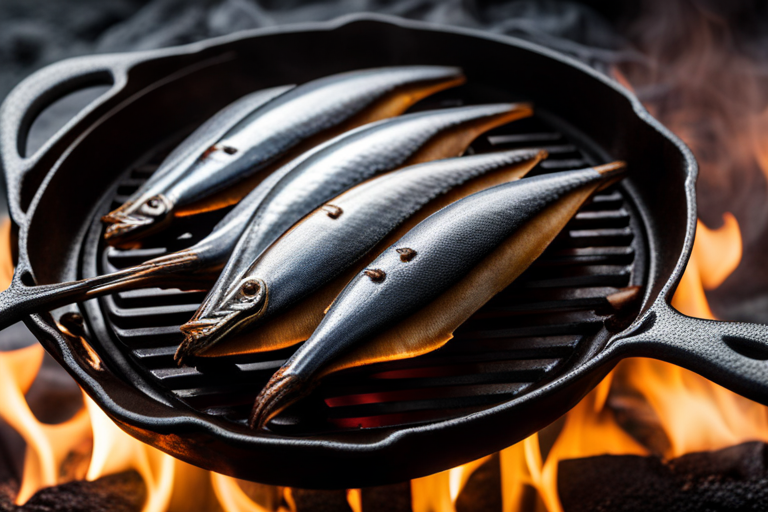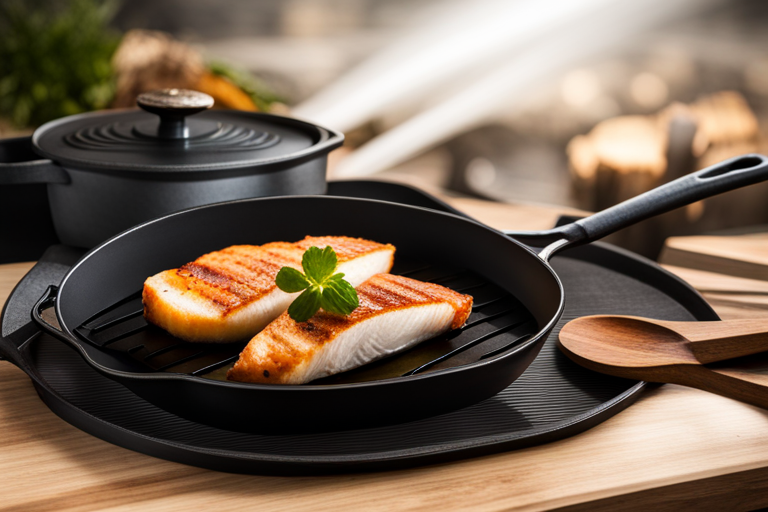Canola oil
Several oils can be used as cooking oils, including olive oil and vegetable oil. However, canola oil is an excellent choice because it has a high smoking point (about 350 °F). This makes it good for frying foods such as potatoes and onions
Vegetable oil
If you are unsure about keeping food cooked in your cast iron skillet, starting with a small amount is recommended to see how it reacts with your recipe.
Vegetable oils can help reduce stickiness but have minimal impact on flavor.
If you want more flavor, swap in another vegetable oil. But keep in mind that some people are allergic to soy or sunflower oils.
Sesame oil
There are many varieties of sesame seeds that produce different flavors. But they all have one thing in common-they’re very healthy.
Sesame is an excellent source of manganese, zinc, fiber, and lignans, phytochemicals found in soy and nuts. Lignans promote bone health and may reduce breast cancer risk.
Seeds contain high quality nutrients like omega 3s, magnesium, phosphorus, tryptophan, and vitamin E. They also provide protein and carbohydrate feedstock for your body. You can find whole sesame seeds at any shop that sells spices. Or you can make your own.
Olive oil
There are many kinds of olive oils, but the best one to use to fry food in is neutral in flavor. You can find this at most grocery stores, although it will cost you some money.
This recipe uses very little of the oil so if you want to save some dollars, just use a few drops more of your favorite olive oil.
The difference between the price of the oil and how much you pay for the bottle probably won’t be that noticeable; however, once you drop a couple of cents here or there, the way recipes turn out differently (and you start getting tired of the same ol’ thing) – it starts making sense to spend a little extra money on quality oil.
A small additional amount doesn’t make up for the slightly higher cost, but over time, that small spending adds up. I checked and verified these prices by buying several bottles at various places.
And don’t worry about storing the right kind for cooking. Eliofsky.com has tons of info about different types of OIL including their differences and tips for using them.
Coconut oil
I’m not going to give you a list of ingredients that you should use for this, because it varies from person to person.
But there are some oils that people seem to react negatively to, which is why I included them here.
For instance, coconut oil has a very strong smell when applied to your skin, but most people can still tolerate it.
However, if you have sensitive skin, try using olive or sunflower oil instead. They’re just as effective, without the sharp smell.
The same goes for soybean oil. Though it sounds weird, it is used in many grocery products (think fried foods), so it is available at pretty much every restaurant.
If you’re looking for an old-fashioned oil with all natural ingredients, rice and palm oil aren’t bad choices.
Rice is one of my favorites since I’m not allergic to it, and palm oil is becoming more common — even in savory recipes. It’s cheaper than other oils, too.
Peanut oil
There are many oils that can be used to season cast iron food products, including vegetable and olive oils. Recently, however, something called peanut oil has become widely available and is even sometimes specified in recipe instructions.
Many people have praised this seasoning technique and its resulting foods (known as “peanut butter”), but it is important to note some of the downsides to using peanut oil as a cooking ingredient.
First, unlike most oils, such as avocado or sunflower, peanut oil tends to stick to your pan quite easily and requires little extra effort to remove. Also, peanut oil may not help reduce dry cast iron cookware completely, since it reduces friction less than lighter/vegetable oils.
Finally, while delicious, peanut dishes can also be much more labor intensive to make and chill than other options. This article will explain why you should avoid using peanut oil as a cooking oil and what alternatives you have.
Linseed oil
You have probably heard about using linseeds or flax seeds in your cooking, as many people promote them for their health benefits. Flax seed oil is also an ingredient in various cosmetics and women’s hygiene products.
However, ground flax seeds are not yet widely available in grocery stores, so if you can only get whole flax pods instead, you may need to break down your own flax seed blend.
Linseed oils are known for being very stable, but there are two things that make this oil beneficial for seasoning cast iron cookware: first, it has a high oxidative stability which means it doesn’t go rancid easily; second, it contains natural antioxidants associated with heart health.
That last part is why professional chefs like James Peterson prefer using linseed oil over other options when they’re preparing food at restaurants. He told us that the flavor of the food isn’t as important as staying healthy and feeding our families correctly.
Walnut oil
There are many varieties of walnuts, found in several places around the world. While they’re all edible, the two most common ones used for food are the Chinese or Japanese walnut and the American walnut.
The Chinese/Japanese walnut is smaller than its American cousin, but contains even more omega 3 fats- an almost perfect balance. Plus, it’s easier to find.
I first discovered this nut oil magic mixture during my last visit to China, where I was thrilled to learn that it also is widely available here. Made from ground walnuts (usually sold already in bulk), this seasoning salt is packed with polyphenols, antioxidants that work really well as flavor enhancers.
Walnut oil also has additional vitamins and minerals including zinc, phosphorus, magnesium, and manganese. All of these nutrients help support healthy skin and bones.
Palm oil
Many people add palm oil or margarine as a fat source in their cooking, but these oils are not great for you. When we cook with them, they can leave a layer of oil on the pan that is difficult to remove. This extra coating of oil can cause your food to become saturated with fats, leading to increased consumption and weight gain.
Palm oil also creates an artificial smell called alliathic nicotinoid compounds which many people aren’t accustomed to putting in foods.
These compounds are linked to allergies and other unwanted effects. While some companies extract palm oil from vegetable sources, it still contains trace amounts of coconut oil. To reduce the amount of this addictive component, don’ t eat too much of it.


Pingback: What Should I Name My Smoker?
Comments are closed.